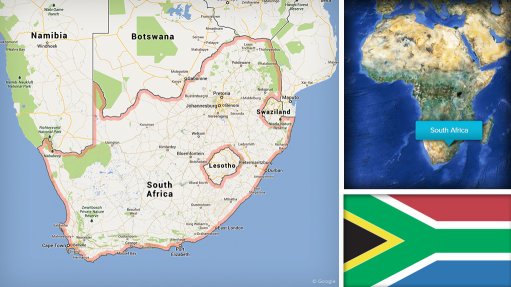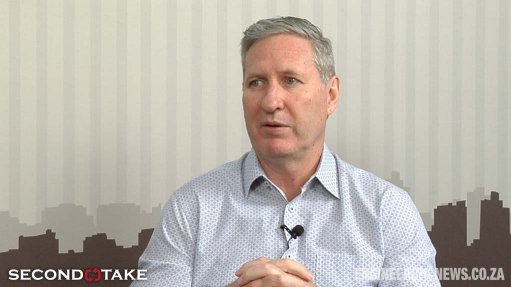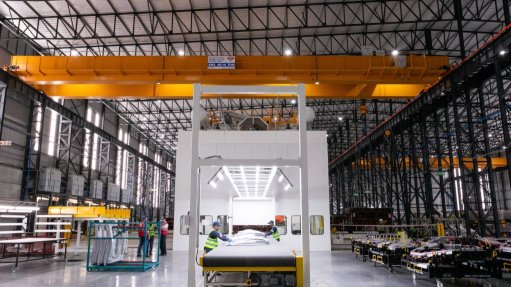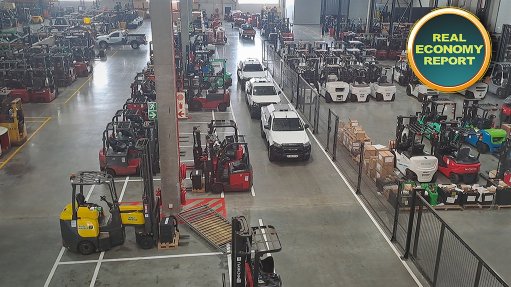US will likely be star performer amid world economic woes
The World Economic Forum (WEF) finds in its latest ‘Chief Economists Outlook’ report that only 17% of economists foresee an improvement in the global economy this year, with 56% of respondents expecting conditions to weaken.
This is owing to heightened uncertainty in key regions and the need for measured policy responses worldwide, the outlook finds.
The outlook was compiled in November last year through consultations and surveys with leading chief economists from the public and private sectors.
While the US appears poised for a short-term boost – with 44% of chief economists predicting strong growth this year, up from 15% when they were asked in August last year – the outlook for the year ahead remains less optimistic for other major economies.
Europe continues to rank as the weakest region for the third consecutive year, with nearly three-quarters of economists surveyed, or 74%, expecting weak or very weak growth.
Meanwhile, China’s economic momentum is projected to slow amid subdued consumer demand and weaker productivity, further illustrating the uneven and uncertain nature of any global recovery.
“The latest ‘Chief Economists Outlook’ reveals a global economy under considerable strain. The growth outlook is at its weakest in decades and political developments both domestically and internationally highlight how contested economic policy has become.
“In this environment, fostering a spirit of collaboration will require more commitment and creativity than ever,” says WEF economic growth and transformation head Aengus Collins.
US ECONOMY
The report underscores the significance of the recent US Presidential election, with 61% of chief economists characterising the impact for the global economy as a long-term shift rather than a short-term disruption.
Major changes are expected in areas such as trade, migration, deregulation, fiscal policy and industrial policy.
The chief economists’ solid outlook for US growth this year is in line with their expectation of near-term stimulus and of rising wages. However, they remain mindful of risks, with almost all respondents, expecting a rise in public debt levels and higher inflation.
INTERCONNECTED STRAIN
In addition to subdued global growth prospects, the ‘Chief Economists Outlook’ reveals intensifying pressures on the world’s economic interconnectedness.
About 94% of economists surveyed predict further fragmentation of goods trade over the next three years, while 59% of them expect services trade to follow a similar path.
More than three-quarters of economists also foresee higher barriers to labour mobility, while almost two-thirds point to rising constraints on technology and data transfers.
However, the financial sector stands out as an exception, with less than half, or 48%, of respondents expecting an increase in fragmentation, which likely reflects the pivotal role of cross-border financial flows in modern economies.
Nevertheless, domestic and international political developments, supply chain realignments and security concerns loom large. These shifts are likely to push up costs for businesses and consumers alike over the next three years.
The WEF says business responses to the increasing fragmentation of the global economy are expected to include restructuring supply chains, with 91% of economists citing as such, regionalising operations (90%) and focusing on core markets (79%).
TRADE OUTLOOK
Nearly half, or 48%, of economists anticipate an increase in global trade volumes in 2025, underscoring the resilience of global commerce. However, a large majority expect intensifying trade tensions, both between major powers and more widely.
The WEF identifies protectionism as the primary factor that will drive lasting changes to global trade patterns, with other prominent contributors including conflict, sanctions and national security concerns.
About 82% of respondents predict greater regionalization of trade over the next three years, alongside a continuing gradual shift from goods to services.
Article Enquiry
Email Article
Save Article
Feedback
To advertise email advertising@creamermedia.co.za or click here
Comments
Announcements
What's On
Subscribe to improve your user experience...
Option 1 (equivalent of R125 a month):
Receive a weekly copy of Creamer Media's Engineering News & Mining Weekly magazine
(print copy for those in South Africa and e-magazine for those outside of South Africa)
Receive daily email newsletters
Access to full search results
Access archive of magazine back copies
Access to Projects in Progress
Access to ONE Research Report of your choice in PDF format
Option 2 (equivalent of R375 a month):
All benefits from Option 1
PLUS
Access to Creamer Media's Research Channel Africa for ALL Research Reports, in PDF format, on various industrial and mining sectors
including Electricity; Water; Energy Transition; Hydrogen; Roads, Rail and Ports; Coal; Gold; Platinum; Battery Metals; etc.
Already a subscriber?
Forgotten your password?
Receive weekly copy of Creamer Media's Engineering News & Mining Weekly magazine (print copy for those in South Africa and e-magazine for those outside of South Africa)
➕
Recieve daily email newsletters
➕
Access to full search results
➕
Access archive of magazine back copies
➕
Access to Projects in Progress
➕
Access to ONE Research Report of your choice in PDF format
RESEARCH CHANNEL AFRICA
R4500 (equivalent of R375 a month)
SUBSCRIBEAll benefits from Option 1
➕
Access to Creamer Media's Research Channel Africa for ALL Research Reports on various industrial and mining sectors, in PDF format, including on:
Electricity
➕
Water
➕
Energy Transition
➕
Hydrogen
➕
Roads, Rail and Ports
➕
Coal
➕
Gold
➕
Platinum
➕
Battery Metals
➕
etc.
Receive all benefits from Option 1 or Option 2 delivered to numerous people at your company
➕
Multiple User names and Passwords for simultaneous log-ins
➕
Intranet integration access to all in your organisation



















